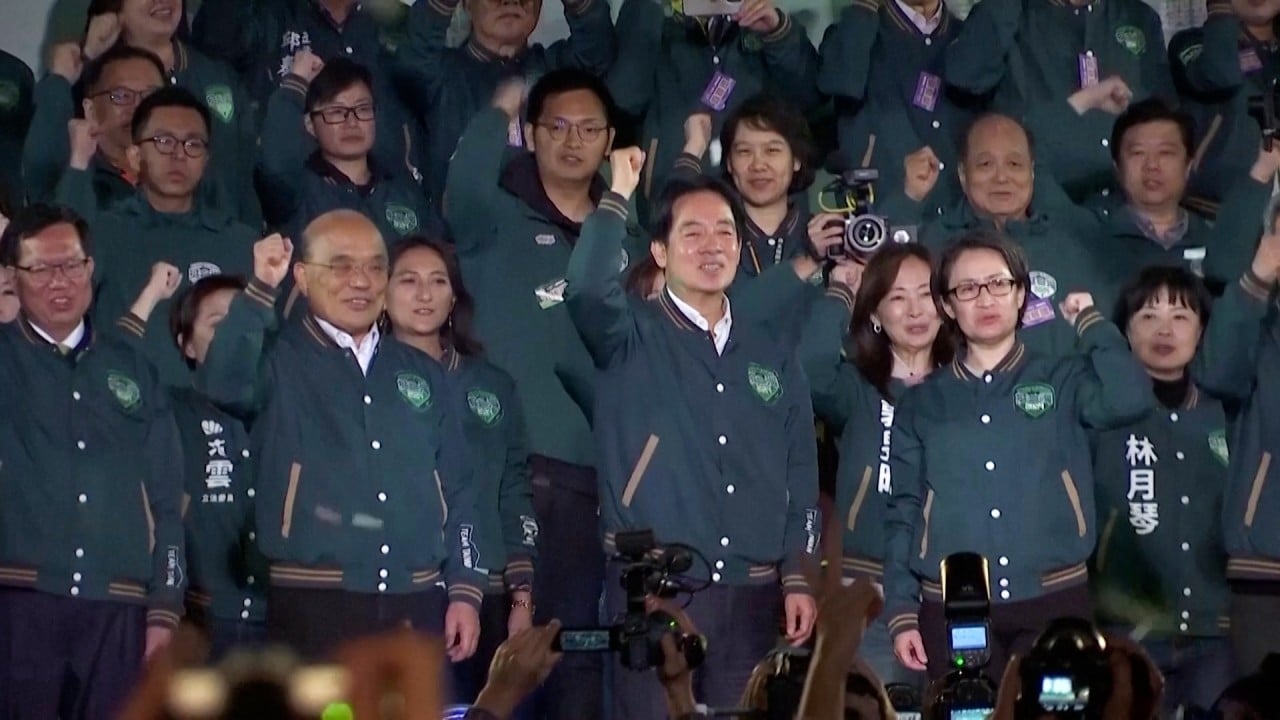
China-US relations: sides convey serious intent on Taiwan and other matters amid party marking 45 years of ties
- ‘There is but one China and Taiwan is part of China,’ Beijing’s ambassador to the US says days after Taiwan election
- Xie Feng calls on the US to accept China for what it is, and acknowledge and accept ideological differences behind their two systems
The anniversary ceremony at the embassy, attended by hundreds of guests from government, industry, the military and diplomacy, celebrated the past 4½ decades without conflict, even as Xie warned that much work needed to be done to ensure this track record continued.
“The two sides also need to learn lessons from history, stay vigilant against a new cold war,” he said, citing the danger of exaggerated definitions of national security, politicising economic and scientific issues, weaponising US-China interdependence and a return to the 1950s McCarthyism that saw strong anti-communist feelings sweep the US.
Washington countered with its own message, also couched in pleasantries: we need to communicate, not close off hotlines or military channels to “ensure that competition does not veer into conflict”.
“Obviously there are issues with the South China Sea to the Taiwan Strait to economic and technology policy, where people have, indeed, differences,” said Daniel Kritenbrink, assistant secretary of state for East Asian and Pacific affairs. “But the United States has a long history of managing complicated and complex relationships through diplomacy. And we are committed to doing so here, and in the coming years.”
Beijing’s 12th ambassador to the United States also called on the US to accept China for what it is and acknowledge and accept the ideological differences behind their two systems.
“China will not become another United States,” he said on Tuesday. “We have no intention to challenge the US or to unseat it.”
Xie added: “Likewise, we hope the United States will also respect China’s development path and core interests, and respect the right of the Chinese people to pursue a better life.”


